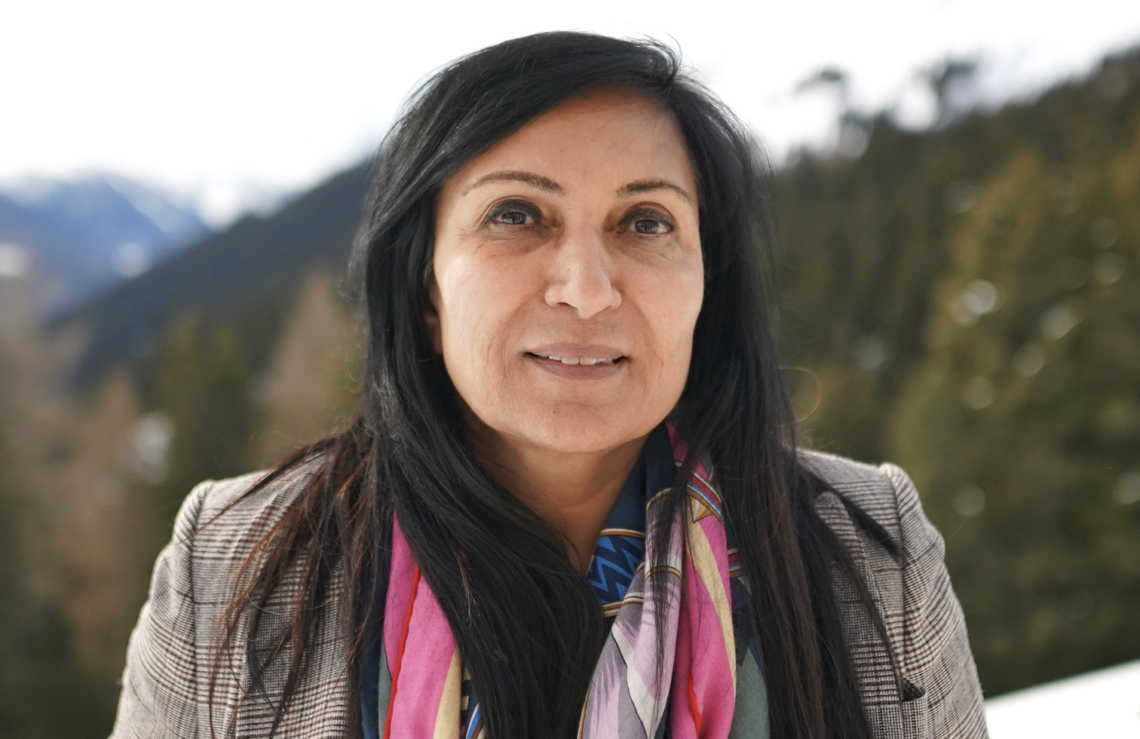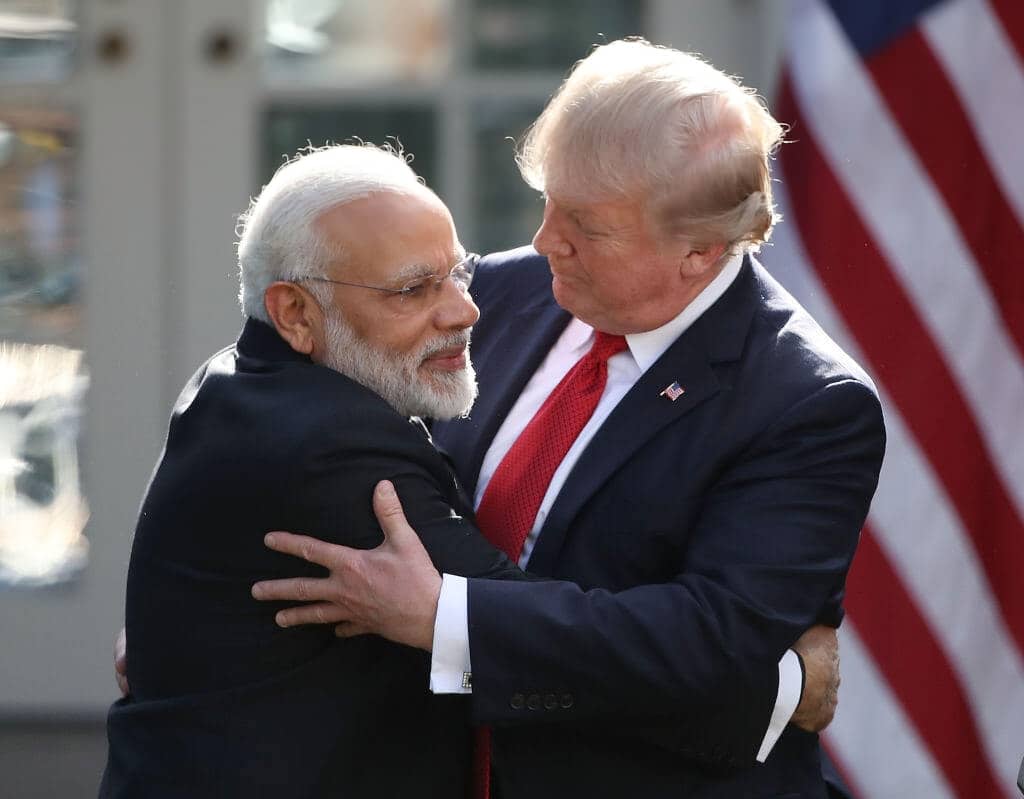Asha Jadeja speaks with The Innovator on building an India-Israel corridor for innovation
Asha Jadeja Motwani, one of Silicon Valley’s highly respected venture capitalists, has invested in over 200 well-known technology startups in the Valley such as PayPal, Mimosa, AppDynamics, Meraki and Pinterest. As founding stakeholders in Google, Jadeja and her late husband Stanford professor Rajeev Motwani, played a pivotal role in shaping the company’s DNA. She continues to collaborate with Google Ventures and the Google Foundation on impactful projects.
In 2012, Jadeja founded the Motwani Jadeja Family Foundation to foster entrepreneurship in under-served communities across the U.S. and India. Her flagship initiative, the Rajeev Circle Fellowship, has supported over 150 fellows, equipping them to solve complex problems and “pay it forward.” These fellows frequently collaborate with TED, INK, and Acumen Fellows, organizations Asha has supported for years. Every year she spearheads efforts to “globalize” her fellows, showcasing them at major global platforms like the Consumer Electronics Show (U.S.), the UN General Assembly (New York), the Munich Security Conference, and the World Economic Forum in Davos, Switzerland.
In 2023, Jadeja launched the Motwani Women Entrepreneurs Fellowship in partnership with TiE Global, empowering 40 disruptive women entrepreneurs from India, the Middle East, and Africa. In December 2024 she launched the India-Israel Innovation Corridor project. As a first step the Foundation is supporting DRISHTI, (Dual Use Robust India-Israel High Tech Innovation) a collaboration between the Israel’s Department of Defense R&D Directorate and the T-Hub accelerator in Hyderabad.
Beyond venture and philanthropic investments, Jadeja supports numerous U.S.-India technology, security, and trade initiatives through her involvement with prestigious institutions, including IIT Kanpur, Hoover Institution at Stanford, University of California (San Diego & Berkeley), Aspen Institute, Milken Institute, Hudson Institute, Asia Society, TED and the Center for a New American Security. She recently spoke to The Innovator about her latest project: building an India-Israel Innovation Corridor.
Q: The Motwani Jadeja Foundation launched its India-Israel Innovation Corridor project in Hyderabad this week. Can you talk about your vision for this project?
AJ: The Motwani Jadeja Foundation is building a bridge between India’s and Israel’s innovation ecosystems as I strongly believe the two countries can benefit each other through collaborations and mergers and acquisitions. There is the potential to jointly build technologies that will benefit India and export these to the rest of the world.
Q: The Foundation is supporting DRISHTI as its first step. What does the program entail?
AJ: The name DRISHTI, derived from the Sanskrit word for vision or insight, reflects the program’s mission to provide a forward-looking platform for strategic partnerships between India and Israel. It will foster innovation and collaboration across dual use technologies with a focus on cutting-edge domains like AI, ML, drones, robotics, and defense tech. DRISHTI encompasses three key pillars: a Center of Excellence in Hyderabad the Foundation is setting up to enable cross-border partnerships and provide market entry support for Israeli startups in India; an India Market Access Program (IMAP) to equip startups with a go-to-market strategy and facilitate business connections,; and high-profile networking events to bring together startups, industry leaders, and delegations from both nations. The Israeli companies participating in DRISHTI will additionally benefit from the Foundation’s strong connections in Silicon Valley. The goal is to build an innovation triangle between Israel, India and the U.S.
Q: There have been many attempts to bring Israeli startups to India and most have failed. What makes this initiative different?
AJ: Many Israeli startups fail to penetrate the India market because they don’t have knowledge of the local market, local partners or a local presence. The companies in the first DRISHTI cohort have already developed products for the defense sector and have existing customers. Their technologies have dual-use and are a good fit for the India market. They will spend 2025 working with mentors in an India immersion program to meet potential customers and investors. The Foundation has established a center of excellence for them at T-Hub in Hyderabad and will arrange meetups throughout the year for these startups to make connections in key innovation hubs in India.
Q: In a recent column in The Innovator Former Cisco Executive Chairman John Chambers said there is more than a 50/50 chance that US and India will lead the world in AI. Is this India’s moment?
AJ: The world of trade needs a China alternative. Prime Minister Modi’s Self -Reliant India program, which includes its drive to build its own semiconductor manufacturing ecosystem, its scaling up of a unified platform for international fintech, its burgeoning biotech sector, its booming space economy and its AI ambitions, are placing it in a pole position. The common thread between India, the U.S. and Israel is a deep commitment to democracy and a strong belief in innovation as a driver of growth. The world is looking to India not just for its talent but for its ideals, its courage and its ability to lead. By fostering global partnerships, empowering our youth and amplifying our innovations, we can redefine our place on the world stage – not as followers, but as leaders of the future. Together we can make India the innovation hub of the 20th century.
Interview Of The Week, Asha Jadeja, India-Israel Innovation Corridor by Jennifer L. Schenker
Disclosure: The Innovator’s Editor-in-Chief, who has experience covering technology in both Israel and in India, is helping the Foundation, a not-for- profit, with its project to build the India-Israel innovation corridor.



